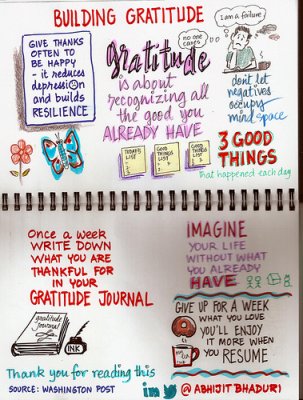How to Use a Self-Help Journal to Improve Your Moods

By: Emma Larkins
by Andrea M. Darcy
Have you heard about keeping a ‘self help journal’? But found it hard to believe writing about your daily life would help with your anxiety and depression?
Journalling can be far more than logging events.
[Feel like journaling isn’t going to cut it, and you need help, fast? Book an online therapist now, be talking to someone as soon as tomorrow.]
5 Ways to Use a Self-Help Journal to Improve Your Moods
Let’s look at new ways you can use journalling to ease anxiety and depression, as well as many other benefits.
1. Record your feelings and moods.
Instead of just recording what happened to you, record what you are feeling and thinking. This can serve a very practical purpose – you can track your moods.
You can start to notice what is triggering your anxiety and depression that you hadn’t recognised before. And when you are feeling overwhelmed by low moods you can look back in your journal and remind yourself that you are not always this way. Things will change.
Struggle to know your feelings? Just keep trying. A surprising starts to happen – you start writing things you didn’t even realise about yourself. It can feel as if your hand knows you more than your head.
Benefits:
- self awareness
- optimism.
2. List five things you are grateful for daily.

By: Abhijit Bhaduri
Yes, you’ve probably heard it before. But gratitude is so talked about as it really works (read our article on “How Gratitude Changes Your Mood” to learn the science behind it).
Write down five things you are grateful for daily, even if they are small things that only make sense to you.
Try to actually feel grateful as you write them. If you can’t muster any feeling, you might be writing down what you think you should be grateful for over what actually makes you feel good. Find something you connect to more.
Benefits:
- better moods
- higher productivity.
3. And list your accomplishments, too.
Think of it as your “I am proud of me” list. This idea is actually influenced by cognitive behavioural therapy (CBT), which can see you track what you actually do with your time. The idea is that a lot of anxiety and depression can come from feeling like we are a failure.
Many of us tend to entirely overlook our own accomplishments, or compare ourselves to others so much we don’t recognise our efforts.
If you have had a challenging day where you feel nothing got done, look for small things you take for granted. You got your kids to school on time, you navigated that lunch meeting with a difficult colleague, you finished the laundry.
On the days you are feeling useless, looking back at these lists can remind you how untrue this is. And it’s also found that recording what we do achieve inspires us to keep achieving.
Benefits:
- set and achieve more goals
- raised self-esteem.
4. Work on some ‘balanced thinking’.

By: Bruce Dall
Another cognitive therapy tool you can try in your journal is called a ‘thought chart’.
A 7-step powerful process, it helps you recognise and challenge the thoughts that bring you down.
You challenge your thought by finding its opposite, and the facts that you actually have to support both sides. Read our article on “Balanced Thinking” to learn the process.
It can feel a bit tiresome at first, but soon becomes addictive as you start to realise how much power you actually have to change your perspective and moods.
Over time, the process becomes natural – you start immediately catching and challenging negative thoughts in your mind. And you stop spiralling out into low moods over small things.
Benefits:
- better moods
- clearer thinking.
5. Try a ‘brain dump’.
Feel furious or sad, and don’t know who to tell? Why not talk to the page? It can be like fast-track therapy session. You feel much lighter after, and are less likely to take out your bad mood on a loved one.
For this journaling technique, it can help to not use your actual journal but some loose sheets (or tear some pages out).
Promise yourself you will rip up the pages afterwards – this creates a safe space for your unconscious mind to really unload.
And then go for it. Write out anything and everything you feel, even if it feels childish, crazy, or downright mean. The page doesn’t judge. And nobody is going to see it, because it all gets ripped up.
Write fast, messy, outside the lines – you don’t need to read it after.
Benefits:
- feel calm fast
- shift mental blocks and big emotions.
Want to work with a cognitive therapist who can help you record your thoughts and start to change your moods? Harley Therapy connects you with some of London’s top CBT therapists in central London locations. Or try our booking site that connects you with registered and experienced UK therapists for online therapy sessions.
 Andrea M. Darcy left a career making a living as a screenwriter to follow her passion and become a mental health and wellbeing expert, training in person-centred counselling and coaching. Using the power of writing to process trauma is of great interest to her. Find her on Instagram @am_darcy
Andrea M. Darcy left a career making a living as a screenwriter to follow her passion and become a mental health and wellbeing expert, training in person-centred counselling and coaching. Using the power of writing to process trauma is of great interest to her. Find her on Instagram @am_darcy




